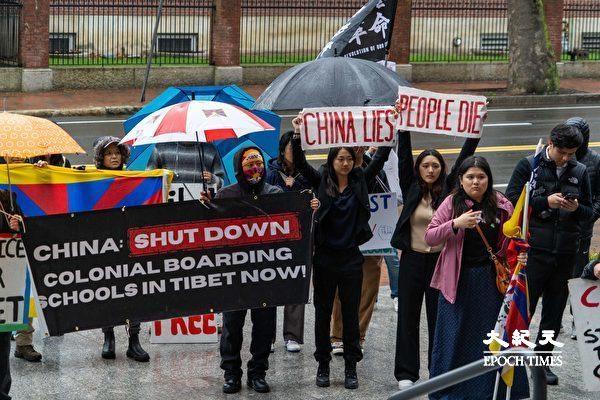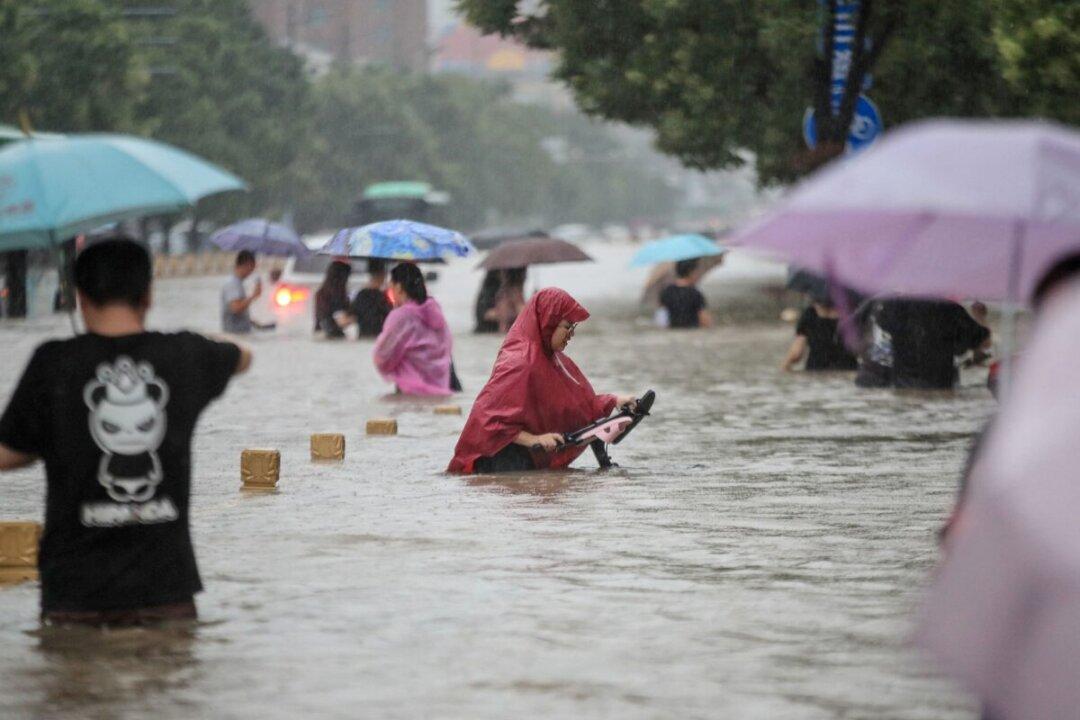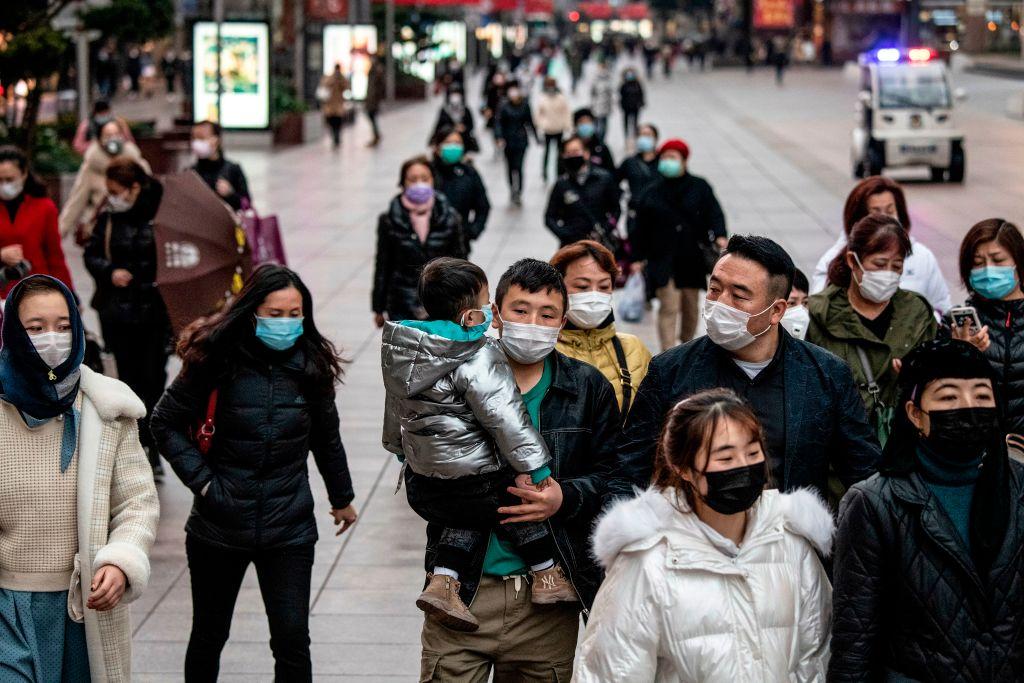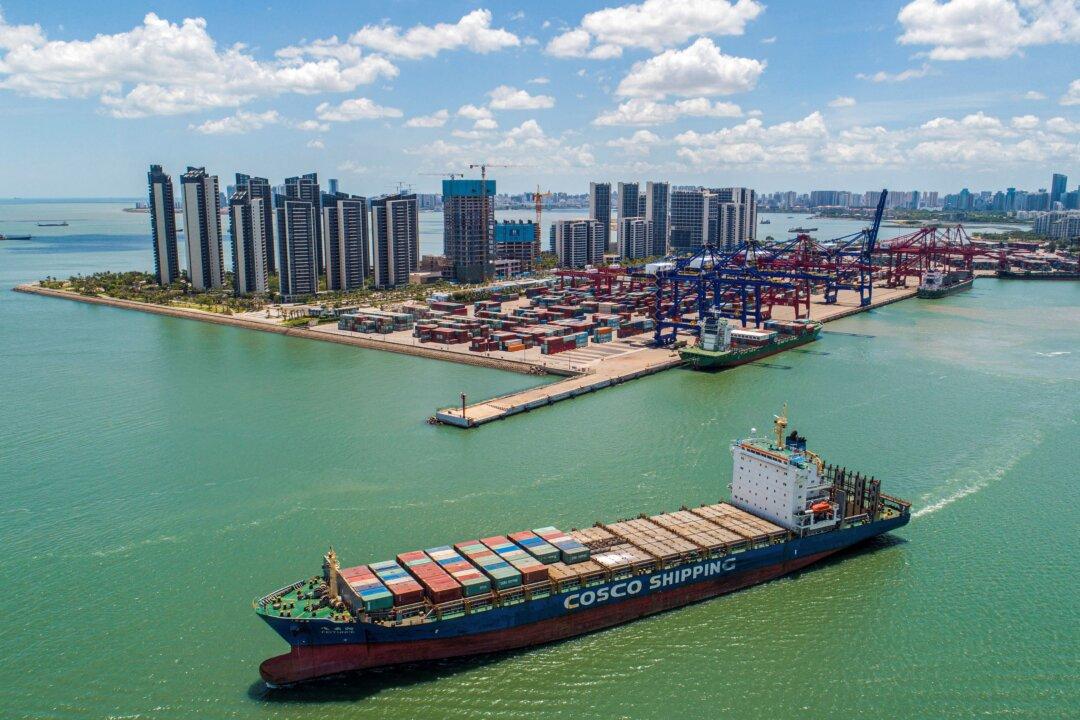China’s Internet censorship has mysteriously been relaxed lately. A number of tightly censored terms and web sites, including “June 4,” were temporarily visible on China’s web browsers, following the high-profile ouster of Bo Xilai and an apparent shakeup in the Chinese regime’s top leadership. Chinese democracy activists are watching the developments as the 23rd anniversary of the Tiananmen Square Massacre approaches.
With the firewall partially unblocked beginning March 20, Chinese netizens were able to google reports on the June 4, 1989 Tiananmen Square student massacre on Baidu during the next two days. Articles citing Premier Wen Jiabao’s recent speech about “redressing miscarriage of justice and lifting the ban on June 4,” and an assessment of the Cultural Revolution at a meeting among Chinese Communist Party (CCP) authorities were among the unblocked search results.
The mood among Chinese netizens was one of elation. But at the same time, Bao Tong, the highest-ranking Chinese official presently still under house arrest for his opposition to Deng Xiaoping’s bloody crackdown on the student protesters, remained under surveillance and gag orders.
Bao is a former director of the Office for Political Reform of the CCP Central Committee and the policy secretary for Zhao Ziyang, the General Secretary of the Communist Party at the time the 1989 student protests. Because of his sympathy for the student demonstrators Zhao was ousted and placed under house arrest until his death in 2005.
Click this tag or www.ept.ms/ccp-crisis to read about the most recent developments in the ongoing power struggle within the Chinese communist regime. Intra-CCP politics are a challenge to make sense of, even for veteran China watchers. Here we attempt to provide readers with the necessary context to understand the situation. Get the RSS feed. Get the Timeline of Events. Who are the Major Players?
The Epoch Times attempted to obtain an interview with Bao, but was only able to speak with him briefly. Bao said he was not in a position to accept interviews as the people who monitored him had forbidden it. They told him if he accepted an interview his phone would never be reconnected again.
Bao’s phone was disconnected for half a year from July 2011 to January 2012, most likely for giving an interview on the 22nd anniversary of the June 4 Massacre, when he said people should be informed of the fact that the leaders fired at their citizens, and that the court should judge whether the leaders were guilty based on China laws, and if they violated the law, they should admit it.
In addition, Bao made a public statement on April 25, 2011, the 12-year anniversary of the persecution of Falun Gong. Bao said the persecution of Falun Gong was a tragedy, similar to the Cultural Revolution launched by Mao Zedong and the Tiananmen Square Massacre launched by Deng Xiaoping.
Regarding the Chinese regime’s defamation of Falun Gong as an “evil cult,” Bao said: “That’s just inventing a bad name to hang the targeted victim by. One person, Jiang Zemin, gave the instruction, then the order. Finally, a law to attack the group was passed by the Standing Committee of the National People’s Congress. I think of the event as a very big, very big mistake.”
Bao added that the miscarriage of justice, a crime against humanity, should be recorded in history books.
Search terms for Falun Gong and The Epoch Times were also unblocked on March 20. The censorship lifting suggests a power shift at the top level of the Chinese regime, as someone with authority must have purposefully arranged the lift, possibly in preparation for the purging of additional high-level officials.
CCP in Crisis
In June 1989 the Chinese regime was at a crossroads. The choice was to reform or to maintain its totalitarian approach. Tanks and the ousting of the liberal Zhao Ziyang ended reform discussions.
In the wake of the June 4 Massacre, the Chinese regime adopted a policy to make all related information disappear from China. While NGOs made efforts to prevent the historical event from fading from memory, youths in their twenties have little knowledge of the actual events that happened 23 years ago in China.
The recent Internet easing of the June 4 search term was short-lived, however. On March 23 Premier Wen’s remarks about redressing the June 4 miscarriage of justice disappeared from Baidu.
Commenting about the recent political developments, Feng Congde, a former June 4 activist and student leader now living in the United States, told The Epoch Times that one should not put any hope in the CCP reforming itself.
On the surface the recent infighting in the CCP is a power struggle between two factions, with Hu Jintao and Wen Jiabao–heirs of the legacy of Deng Xiaoping and representing the CCP’s right wing–on one side. On the other side is Bo Xilai, who represents the CCP’s new left and speculators. It can also be viewed as a clash between Hu and former CCP head Jiang Zemin for control over the CCP, Feng said.
“No matter what the outcome, it’s in fact the power struggle of the biggest gang in the history of mankind,” Feng said.
Brutal infighting in the CCP usually occurs during times when the Party goes through a crisis. Bo Xilai has come along with his new leftist campaign just at the time when the CCP under Deng’s legacy has come under crisis. But Bo is a false leftist, and he merely had aspirations to assume the highest position in the CCP, Feng said.
“The CCP’s economic policies have pressed people and society to be extremely unequal,” Feng said. “There is no social justice. The polarization of rich and poor and the collusion of the wealthy with criminal elements have become a new social problem. As a result, the so-called New Left has come about in China, which promotes social and wealth equality. It’s understandable that people of the lower classes have such sentiments of demanding equality.”
Feng said Bo is a speculator who has utilized this resentment by the people. But there is really no way to implement social equality outside of the CCP’s system, and the so-called “singing red songs” was just a way Bo utilized to make use of people’s grievances to engage in a power struggle.
“But if there is any sign of trouble, they will not hesitate to even defect to the imperialist U.S. What an irony,” Feng exclaimed, referring to Wang Lijun, Bo’s former chief of police and right-hand man, who attempted to defect to the U.S. consulate in Chengdu on Feb. 6.
Feng said that without the framework of constitutional democracy, rule of law, and the return to traditional values and virtue, any kind of infighting between the CCP’s left and right wings is just the vicious power struggle of a totalitarian regime and has nothing to do with the establishment of a fair and equal society.
Feng said, being a June 4 student, he learned the lessons of dealing with the CCP and its black-box-politics. “The nature of the CCP won’t change. Therefore, do not hold any hope in the CCP,” he said emphatically.
“I thought that Wen Jiabao had made a positive effort during the June 4th movement,” Feng said. “He also accompanied Zhao to Tiananmen Square to visit the students. But some seemingly moderate communists might be even more brutal when it comes to repressing people. This is because the CCP system will turn any ordinary person into a wolf. The integrity of a CCP member can’t be trusted. Of course, there is also the possibility that some CCP members will abandon the CCP when revolution comes, just like at the collapse of the former Soviet Union. But this is the result of abandoning the communist system.”
Jin Zhong, Editor-in-Chief of Hong Kong’s Open Magazine, told New Tang Dynasty TV: “A lot of things Bo did has similarity with the CCP’s policies. They are actually of the same nature. Today, Bo has fallen from his position. It doesn’t mean that the CCP has become better.”
Chris Wu, Editor of China Affairs web magazine, told Sound of Hope Radio: “China is at crossroad. There must be a new force to replace the CCP, clear the CCP’s remnants from society and its influence on ideology and culture. Then can China have hope.”



